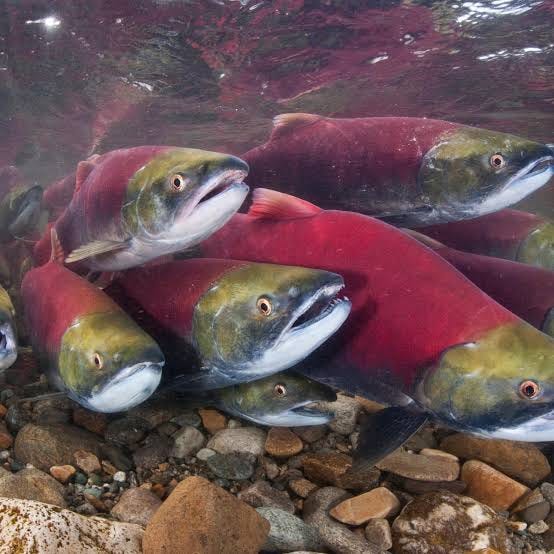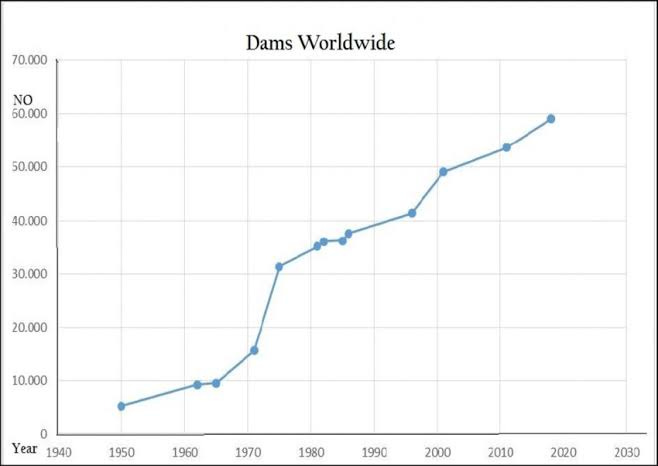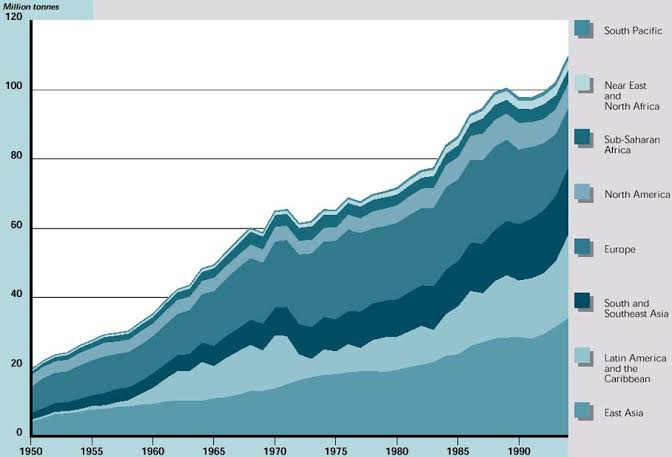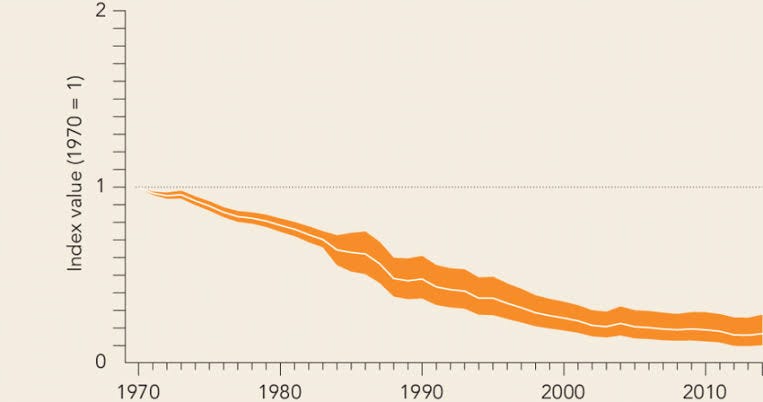Freshwater population declines by 83 percent since 1970, says a study
Along with a decline by 88 percent of freshwater megafauna: it's time to see freshwater habitats within a system concept
Fresh fish, Credit, The Guardian
Fresh water migratory fishes suffered a decline of 76 percent from 1970 to 2020, a higher rate of decline than terrestrial species, after a study monitored over 247 species.
The global population of freshwater megafaunna dropped by 88 percent from 1970 to 2012, two times the decline of the number of vertebrates on land or in the ocean, showing threats that freshwater life faces.
The average decline in overall amphibian population in the United States stands at 3.79 percent per year, with some speculating that some species will disappear if the rate continues at the present pace.
In another report, among tetrapods, 40.7 percent of amphibians, 25.4 percent of mammals, and 13.6 percent of birds face the threat of extinction, while at least 1,829 out of 10,196 species representing 21.1 percent of reptile population also face the threat of annihilation.
From this, it follows that freshwater life stands at a risk, especially as freshwater population declined by almost 83 percent since 1970. In fact, the IUCN carried out studies on more than 10,000 out of the 18,000 freshwater fish species and discovered that a third of them could stand at the risk of extinction.
Global warming threatens the freshwater habitats. For instance, with the rise in global mean temperature at 3.2 degree Celsius, more than half of the habitat for one-third of all freshwater species could get affected, with the number of species smaller if warming limits itself to 1.5 degree.
Growth in number of dams, Credit, Researchgate
An estimated 60,000 dams exist worldwide, with 50,000 having 15 meters in height or higher, and dam reservoirs covering over 400,000 square kilometers, the volume equaling seven times that of the world’s rivers combined. But dams halt the free movements of for instance freshwater fish, and this could impact on their ability to reach mating and feeding grounds downstream, a situation which could worsen by 2030, as at least 3,700 new dams with generating capacities larger than one megawatt will get built.
A study projected that as many as 20 percent of lizard species worldwide could go extinct by 2080, and that local extinctions could reach as high as 40 percent, even as four percent of local populations have gone extinct since 1975, an indication that reptiles could also have their own temperature limits.
In essence, therefore, temperature limits could be one of the factors affecting reptiles such as lizards. The presence of dams proves to be a factor preventing the free movements of freshwater fish, which suffers through a decline in the population of the species. Freshwater fishes, not unlike others, get affected by rising temperatures in their habitats, and it’s no wonder the freshwater population suffers a decline of 83 percent since 1970.
World review of fishing, Credit, FAO.ORG
Unfortunately, only a third of the world’s large rivers remain free from dams and other river barriers, and this could be dangerous in the future for freshwater fish. Over 90 percent of the world’s freshwater fish caught in the developing countries provide a major protein source, as well as a livelihood to millions of persons, with the number of people engaged in fishing worldwide rising from about 25.9 million in 1995 to around 37.88 million by 2020, some 20,67 million engaged in acquaculture.
With the extinction of the threatened 1,829 reptiles, the planet loses a combined 15.6 billion years of evolutionary history, as well as agents that help disperse seeds, catalyze medical advances, and allow for critical drug discoveries, including the treatment of hypertension, which affects an estimated 1.3 billion worldwide, killing 10 million people every year.
Important ecosystems such forests and wetlands provide billions of dollars to an economy, through the support they give to fishing and timber industries, but without amphibians to serve as predators and key food sources to many species in a freshwater environment, forests and wetlands would become unhealthy, causing challenges to millions of people.
Decline of Freshfish population, Researchgate
For millions of people to survive, a healthy ecosystem should be maintained, meaning the habitats of the more than 6,000 amphibian species must be guaranteed. Also, the planet demands the existence of the threatened 1,829 reptile species, to prevent the evolutionary loss of billions of years. In addition, the life of 37.88 million people stands threatened, with the possible extinction of freshwater fish and megafauna.
The reduction of animal products in human diet offers the potential to save water resources, up to the amount currently required to feed 1.8 people globally. A redefinition of water systems could prove important, so freshwater habitats could be seen within a landscape or system concept, not allowing laws and agency regulations lag in the recognition of challenges confronting lakes, rivers, or wetlands. With a recognition given to wetlands and others, and freshwater habitats seen within a system context, the threat of extinction facing freshwater fish and megafauna may be averted.
Further reading
One-Third of Freshwater Fish Species Are at Risk of Extinction. Read here.
The decline of North American freshwater fishes. Read here.
South Africa’s freshwater fish face extinction. Read here.
The decline of fisheries on the Madeira River, Brazil: The high cost of the hydroelectric dams in the Amazon Basin. Read here.
What to eat
Vegan diet from Vietnam, Credit, Veggievagabonds.com








Hey Adetokunbo: New subscriber here, found you as I write on similar topic.
This is interesting... I've never considered conservation from the standpoint of medical research. Reminds me of Ayurveda in India, where they are having difficulties because several plants mentioned in the ancient remedies are endangered and hard to find. Nice work, looking forward to more, especially since I'm quite interested in the African perspective but don't find many African writers here!
Good info Adetokundo. It is important humans wake up to what we are doing to other species. I too just did a piece on the massive loss of wildlife populations -- absolutely tragic. Thanks for writing and the good research.